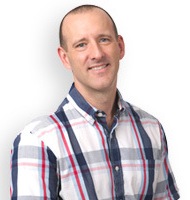 The
Charles Sturt University (CSU) paramedic graduates recently recruited to work
with the London Ambulance Service (LAS) will enjoy professional registration,
something denied them in Australia.
The
Charles Sturt University (CSU) paramedic graduates recently recruited to work
with the London Ambulance Service (LAS) will enjoy professional registration,
something denied them in Australia.
Mr Joe Acker, paramedic senior lecturer in the CSU School of Biomedical Sciences in Port Macquarie, said, "One of the benefits for our paramedic recruits to LAS is that they will work as registered health professionals, a recognition not available in Australia.
"If our paramedic graduates work in countries like Canada, the UK, Ireland, the United Arab Emirates, and South Africa, they will work as registered health professionals, whereas the reality is that in Australia, paramedics are not yet registered health professionals like doctors, nurses, pharmacists, and the other 11 professions recognized under the Australian Health Practitioner Registration Agency (AHPRA)," he said.
Mr Acker says this is a glaring and discomforting issue for paramedics, given that they are widely considered by the public to be 'the most trusted profession' in Australia.
"Australian universities provide the best undergraduate and postgraduate paramedic education in the world and we have some of the largest and most sophisticated ambulance services, yet paramedics are not registered health professionals," he said. "Professional registration exists to protect the public and the patients, so our state, territory, and federal governments owe it to Australians to regulate paramedicine."
Mr Acker explained that since ambulance services in Australia, New Zealand and the UK have shifted from in-house vocational training to university degrees, Australian paramedics are highly sought by other countries which only hire paramedics with undergraduate degrees. And since CSU has one of the longest-running and most successful university paramedic courses in the world, offering the Bachelor of Clinical Practice (Paramedic), there are now hundreds of CSU paramedic graduates working in Canada, Ireland, New Zealand, Vanuatu, South Africa, Abu Dhabi, Qatar and now England. CSU accounted for 55 of the 226 employment offers (nearly 25 per cent) recently made by LAS to start in 2016.
"When Charles Sturt University paramedic graduates leave Australia and become registered paramedics with the Health and Care Professions Council (HCPC) in the UK, or the professional colleges in Canada, South Africa, the UAE or Ireland, this level of professional recognition not only legitimises the role of paramedics in the health care system, but it makes them more accountable for their education, professional development and professional conduct," Mr Acker said.
"Paramedics perform incredibly complex and invasive clinical skills in uncontrolled environments. Whether it is administering thrombolytics (clot-busting) medications to patients having a heart attack, treating a severe asthma attack, or suturing a laceration in a patient's home; paramedic care is critical and essential, but not without risk. Paramedics want to be recognised as responsible and accountable under a national framework like their physician, nursing, and allied health colleagues. They also want to be recognised as being health care professionals."
"The CSU paramedic graduates who go to London or Canada are required to become registered health professionals which will require them to work under a prescribed code of conduct, meet regular continuing professional development requirements, and be accountable for their clinical conduct to a panel of their peers. This experience will help them grow as professionals and their status as 'registered professionals' will enhance their mobility and ability to work in many other countries around the world."
Ms Ebony Langdon, one of the CSU in Port Macquarie paramedic graduates recruited to work with LAS, said, "To work as a paramedic in Britain, I have to be HCPC registered which means that the title of paramedic is protected and I have to work at an established high standard. I know I will be held accountable to ensure I am providing all my patients with excellent care. I also know that it will be much easier for me to return to Australia to get a job with an ambulance service because I will have experience working as a registered professional paramedic. Australia needs paramedic registration not only to protect the public, but also to advance the paramedic profession."





Social
Explore the world of social